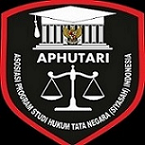Jual Beli Kosmetik Bekas Dikalangan Mahasiswa
Abstract
Muamalah is God's rule that regulates human relations with humans in meeting needs either by exchanging goods or something useful. In muamalah, buying and selling is the most important activity, such as buying and selling used cosmetics. Used cosmetics are traded by students at the Padangsidimpuan State Islamic Institute. Used cosmetics come from personal property and some items that are deposited for resale. Used cosmetics are offered with several details such as price and product conditions.The main problem in this study is how the practice of buying and selling used cosmetics among students of the Padangsidimpuan State Islamic Institute and how the fiqh muamalah review of the practice of buying and selling used cosmetics.This research uses the field research method (field research). Data collection techniques used in this study were observation, interviews and documentation. Data analysis was carried out using the text method which was sourced from the research subject, namely the sources of sellers and buyers of used cosmetics.The results showed that the practice of buying and selling used cosmetics among students of the Padangsidimpuan State Islamic Institute did not provide clear information about the product, used cosmetics were sold without product packaging boxes, and the unbalanced content of cosmetics with the prices of used cosmetics. The review of muamalah fiqh in the practice of selling used cosmetics carried out by students violates the basic principles of muamalah, namely the object being traded is not clear because it is speculative or vague, it is forbidden to be traded because used cosmetic products sold do not yet have BPOM notification and Halal label. This buying and selling should be done on the basis of attracting benefits and rejecting harm. In practice, buyers do not feel the benefits of buying used cosmetics because the contents of the cosmetics have been widely used before and the cleanliness and safety of the products are not guaranteed so that buyers get negative effects from using products such as acne, irritation, and reddened skin. For sellers, this activity is caused by the desire to sell used cosmetics to get money back and there are also those who are no longer suitable for using these cosmetic products.
Keywords
Full Text:
PDFReferences
Referensi
a. Sumber Buku
Suhendi, Hendi. Fiqh Muamalah, Jakarta: PT Raja GrafindoPersada,2014.
Nasrun Haroen, Fiqh Muamalah, Jakarta: Gaya Media Persada, 2007.
Dimyauddin Djuawaini, Pengantar Fiqh Muamalah, Yogyakarta: Pustaka Pelajar, 2008.
b. Sumber Jurnal
Gunawan, Hendra. "Analisis Jual Beli Petasan Perspektif Hukum Pidana Islam Dan Hukum Positif", Jurnal Yurisprudentia : Jurnal Hukum Ekonomi, Vol.6, No 2. 2020.
Harahap, Ikhwanuddin. "Memahami Urgensi Perbedaan Mazhab Dalam Konstruksi Hukum Islam Di Era Millenial", Jurnal Al-Maqasid : Jurnal Ilmu Kesyariahan dan Keperdataan, Vol. 5, No. 1, 2019.
Harahap, Nurhotia “Perlindungan Hukum Terhadap Konsumen Terkait Dengan Kenaikan Harga Masker Di Masa Pandemi Covid-19”, Jurnal Al-Maqasid: Jurnal Ilmu Kesyariahan dan Keperdataan, Vol. 7, No. 1, 2021.
Hasibuan, Zulfan Ependi. “Urgensi Sertifikasi Halal Pada Makanan.” Jurnal El-Qanuniy: Jurnal Ilmu-Ilmu Kesyariahan Dan Pranata Sosial, Vol. 6 No. 1, 2020.
Mustafid, “Hukum Perbuatan Roasting Dalam Stand Up Comedy Ditinjau Berdasarkan Ketentuan Syari'at Islam”, Jurnal Yurisprudentia: Jurnal Hukum Ekonomi, Vol. 7 No. 2, 2021.
Nasution, Adanan Muroh. "Batas Mengambil Keuntungan Menurut Hukum Islam", JurnalEl-Qanuniy : Jurnal Ilmu-Ilmu Kesyariahan dan Pranata Sosial, Vol. 4, No. 1, 2018.
Siregar, Neila Hifzhi. “Tinjauan Hukum Perjanjian Syariah Terhadap Klausul Meninggal Dunia Dalam Kontrak Pembiayaan Bank Syariah.” Yurisprudentia: Jurnal Hukum Ekonomi Vol.5 No., No. 2, 2019.
Siregar, Sawaluddin ''Perspektif Hukum Islam Mengenai Mekanisme Manipulasi Pasar Dalam Transaksi Saham Dipasar Modal'', Yurisprudentia: Jurnal Hukum Ekonomi, Vol. 3, No. 2, 2017.
Ummi Kalsum Hasibuan, “Keadilan Dalam Al-Qur’an ( Interpretasi Ma’ Na Cum Maghza Terhadap Q.S. Al-Hujurat {49} ayat 9)”, Jurnal Al-Fawatih : Jurnal Kajian Al Qur’an dan Hadits, Vol. 1, No. 2, 2020.
DOI: https://doi.org/10.24952/el-thawalib.v3i2.5327
Refbacks
- There are currently no refbacks.









Editorial Office Board :
Kampus UIN Syekh Ali Hasan Ahmad Addary Padangsidimpuan
Jl. T Rizal Nurdin No.Km 4, RW.5, Sihitang, Padangsidimpuan Tenggara, Kota Padang Sidempuan, Sumatera Utara 22733
 Jurnal El-Thawalib is licensed under a Creative Commons Attribution-ShareAlike 4.0 International License.
Jurnal El-Thawalib is licensed under a Creative Commons Attribution-ShareAlike 4.0 International License.
View My Stats






